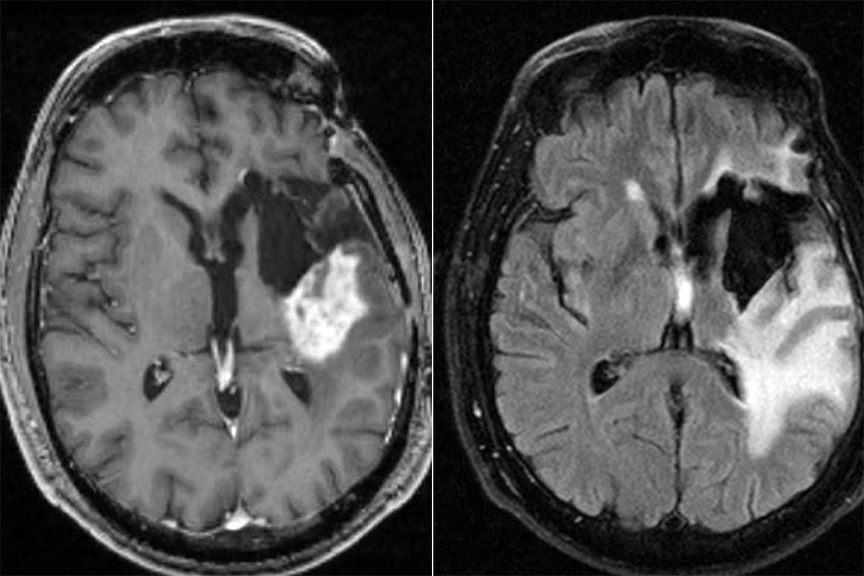 |
| Photo credit – Washington University School of Medicine |
The study involved a look back at the treatment of 166 patients treated for glioblastoma at Washington University School of Medicine. The treatments included surgery, chemoradiation and a chemotherapy regimen using Temozolomide (TMZ).
When they looked at the patterns of treatment and adjusted for other factors, they found that those patients who were treated with TMZ in the morning survived an average of 4 months longer. The study appeared online March 2, 2021 in the journal Neuro-Oncology Advances.
“We are working hard to develop better treatments for this deadly cancer, but even so, the best we can do right now is prolong survival and try to preserve quality of life for our patients,” co-senior author and neuro-oncologist Jian L. Campian, MD, PhD, said in a press release. “These results are exciting because they suggest we can extend survival simply by giving our standard chemotherapy in the morning.”
Glioblastoma is one of the most deadly forms of brain cancer with patients surviving an average of 12 to 18 months after diagnosis and only 7 percent of patients surviving 5 years or more, according to the National Brain Tumor Society.
In this study those treated with TMZ in the morning survived an average of 17 months compared to an average survival of 13.5 months for those treated in the evening. When they looked at a subset of patients with what are called methylated tumors and took into account other factors affecting survival the researchers found that median overall survival was 6 months longer for the patients treated in the morning.
"Very few clinical trials consider time of day even though they target a biological process that varies with time of day and with a drug that is rapidly cleared from the body," Joshua B. Rubin, MD, PhD co-senior author of the study said in a press release.
"We will need clinical trials to verify this effect, but evidence so far suggests that the standard-of-care treatment for glioblastoma over the past 20 years could be improved simply by asking patients to take the approved drug in the morning,” he added.
“We are working hard to develop better treatments for this deadly cancer, but even so, the best we can do right now is prolong survival and try to preserve quality of life for our patients,” co-senior author and neuro-oncologist Jian L. Campian, MD, PhD, said in a press release. “These results are exciting because they suggest we can extend survival simply by giving our standard chemotherapy in the morning.”
Glioblastoma is one of the most deadly forms of brain cancer with patients surviving an average of 12 to 18 months after diagnosis and only 7 percent of patients surviving 5 years or more, according to the National Brain Tumor Society.
In this study those treated with TMZ in the morning survived an average of 17 months compared to an average survival of 13.5 months for those treated in the evening. When they looked at a subset of patients with what are called methylated tumors and took into account other factors affecting survival the researchers found that median overall survival was 6 months longer for the patients treated in the morning.
"Very few clinical trials consider time of day even though they target a biological process that varies with time of day and with a drug that is rapidly cleared from the body," Joshua B. Rubin, MD, PhD co-senior author of the study said in a press release.
"We will need clinical trials to verify this effect, but evidence so far suggests that the standard-of-care treatment for glioblastoma over the past 20 years could be improved simply by asking patients to take the approved drug in the morning,” he added.
Sources: Washington University School of Medicine press release and the journal Neuro-Oncology Advances


No comments:
Post a Comment